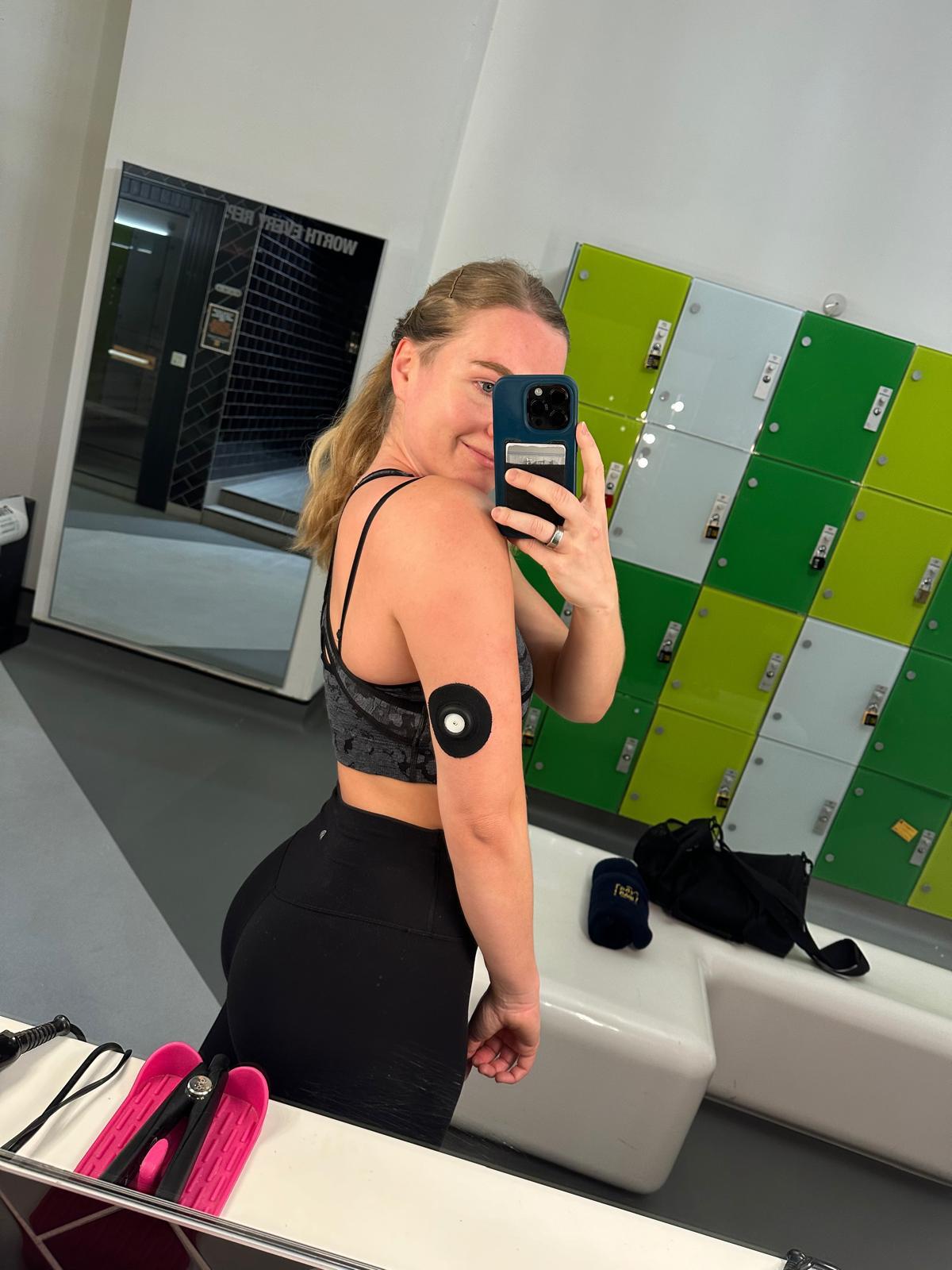Testosterone, often considered the quintessential male hormone and a key driver of male vitality, is a crucial androgen primarily produced in the testes in men and, in smaller amounts, in the ovaries and adrenal glands in women. While men naturally have higher levels, testosterone plays a vital role in both sexes, supporting muscle growth, bone density, metabolism, mood regulation, and libido. Beyond its reputation for fuelling strength and masculinity, testosterone is essential for overall health, energy, and longevity.
My name is Mia and I am a Naturopathic Doctor and Herbalist. I have spent years helping people reclaim their health through a root-cause, holistic approach. In my practice, I have observed an alarming trend, more men are struggling with low testosterone, often without realising it. Chronic fatigue, low motivation, stubborn weight gain, mood imbalances, poor recovery, and declining metabolic health are all symptoms of low testosterone wreaking havoc on men’s well-being.
What is even more concerning is that this is not just happening in older men. Many younger men in their 20s and 30s are experiencing symptoms once considered part of ageing, despite being unaware that their hormones are out of balance. Testosterone levels have been steadily declining for decades, and modern lifestyles are exacerbating the problem.

The good news? You can take control.
By making the right changes in nutrition, herbal medicine, supplementation, and lifestyle, you have the power to naturally restore testosterone levels, reclaim your energy, and feel like yourself again without relying on synthetic interventions. Understanding what is suppressing testosterone and implementing effective strategies will allow you to take control of your health and vitality.
This article will provide practical, science-backed solutions to help you identify what is depleting your testosterone and what you can do to optimise it naturally. Optimising testosterone is not just about muscle and libido it is about longevity, mental clarity, metabolic health, and overall well-being. When you take charge of your hormones, you take charge of your health.
Symptoms of Low Testosterone
● Low energy & constant fatigue
● Difficulty building muscle & loss of strength
● Increased body fat, especially around the abdomen
● Man boobs (gynecomastia) & chest fat that will not go away
● Weaker bones & joint pain
● Erectile dysfunction & low libido
● Thinning hair or hair loss (head, face, or body)
● Slower recovery from workouts & injuries
● Brain fog, trouble focusing & poor memory
● Lack of motivation, drive & competitiveness
● Depression, mood swings & increased irritability
● Higher stress levels & lower stress tolerance
● Sleep disturbances & trouble falling or staying asleep
● Insulin resistance & stubborn weight gain
● Low sperm count & reduced fertility
Causes of Low Testosterone
It’s important to get to the root cause, identify the key triggers and eliminate the factors driving this testosterone epidemic. Without addressing what’s actively suppressing testosterone, any attempt to optimise it will be an uphill battle.
1. Endocrine Disruptors & Environmental Toxins
● Plastics (BPA, phthalates, parabens):Found in water bottles, food containers, and personal care products, these chemicals mimic oestrogen and disrupt hormone balance. Avoid plastic bottles, especially if exposed to heat.
● Pesticides & Herbicides (Glyphosate, Atrazine): Common in non-organic produce, they interfere with testosterone synthesis.
● Heavy Metals (Lead, Mercury, Cadmium, Aluminium): Found in contaminated water, seafood, and industrial pollution. Avoid farmed seafood and low-quality rice and dark chocolate.
● Fluoride, Chlorine and Oestrogen in Tap Water: Which contains oestrogen and endocrine disruptors from pharmaceutical runoff (e.g., birth control pills), agricultural chemicals, industrial pollution, and additives like chlorine and fluoride. These contaminants may lower testosterone by disrupting hormone balance.
● Air Pollution & Synthetic Fragrances: Toxins from pollution, perfumes, and air fresheners contain xenoestrogens that lower testosterone.
2. Poor Diet & Nutritional Deficiencies
● Low Intake of Healthy Fats: Testosterone is synthesised from cholesterol, so avoiding saturated fats, omega-3s, and cholesterol-rich foods (like eggs, organ meats, and grass-fed butter) can hinder production. Skip seed oils, margarines and any fat or products that didn't exist 100 years ago.
● Excess Processed Foods & Seed Oils: Industrial oils (rapeseed, soybean, sunflower) cause inflammation and oxidative stress, lowering testosterone.
● Low Zinc & Magnesium Levels: These minerals are essential for testosterone synthesis and sperm production.
● Vitamin D Deficiency: A critical hormone that directly impacts testosterone levels. The sun is medicine, not something to hide from!
● Excess Sugar & Refined Carbs: Spikes in blood sugar and insulin resistance disrupt testosterone and increase oestrogen. stop over consuming processed food, eat real food, wholefood, single ingredient foods.
● Low Protein Intake: Amino acids are crucial for muscle growth and hormone regulation, many men now are overfed yet under nourished.
● High Alcohol Consumption: Alcohol, especially beer (which contains phytoestrogens from hops), lowers testosterone and increases oestrogen, say no to beer belly and man boobs.
● Chronic Stress & High Cortisol: Long-term stress keeps cortisol levels elevated, which directly suppresses testosterone.
● Poor Sleep Quality: Lack of deep sleep reduces testosterone production. Sleep is healing and helps the body restore and recover, don't overlook this.
● Sedentary Lifestyle: Lack of movement, especially strength training, lowers testosterone levels.
● Overtraining & Excessive Cardio: Prolonged endurance exercise increases cortisol and depletes testosterone.
● Lack of Sunlight & Infrared Light Exposure: UVB exposure helps produce vitamin D, a key hormone for testosterone synthesis.
● Excessive EMF & Blue Light Exposure: Screens, Wi-Fi, and artificial lighting disrupt circadian rhythms, leading to hormonal imbalances.
● Watching Pornography: Overstimulation from pornography lowers dopamine, increases prolactin, and reduces motivation and testosterone levels.
● Low Social & Competitive Engagement: Lack of purpose, drive, and social dominance behaviors have been linked to lower testosterone.
4. Medical & Pharmaceutical Factors
● Obesity & Excess Body Fat: Fat cells convert testosterone into oestrogen through aromatisation.
● Insulin Resistance & Type 2 Diabetes: Poor metabolic health suppresses testosterone production.
● Statins & Medications: Cholesterol-lowering drugs reduce the raw materials needed for testosterone synthesis.
● SSRIs & Antidepressants: Many antidepressants are linked to lower testosterone and reduced libido.
● Opioids & Painkillers: Chronic opioid use can shut down testosterone production.
5. Hormonal Disruptions & Other Factors
● Low DHEA Levels: DHEA is a precursor to testosterone, and low levels indicate poor adrenal function.
● Hypothyroidism & Poor Thyroid Function: The thyroid and testosterone are closely linked, and a sluggish thyroid can impact testosterone levels.
● Excess Oestrogen from Phytoestrogens & Xenoestrogens: Soy products, flaxseeds, and chemical oestrogens from plastics and water sources disrupt hormonal balance and excess oestrogen suppresses testosterone by promoting fat storage and hormonal imbalance
● Aging & Declining Testicular Function: While testosterone naturally declines with age, modern factors are accelerating this process.
Yes, the list is long, and depending on your circumstances, some things may be difficult to completely avoid. But the goal isn’t perfection, it’s progression. It’s about breaking free from the conventional health norms that are leaving people sicker and weaker, and instead making intentional choices that support longevity, strength, and vitality.
At Super Botanic, we recognise that true health is holistic, it’s not just about what you eat, but also the thoughts you think, the environment you’re in, and the habits you cultivate. Our mission is to empower individuals with the knowledge to take control of their health and provide key herbal supplements and nutrients to support that journey.
So here's how you can optimise your testosterone:
Food to include:
1. Healthy Fats & Cholesterol (Building Blocks of Testosterone)
Egg yolks: Rich in cholesterol, vitamin D, and choline for hormone production.
Grass-fed butter & ghee: Provides healthy saturated fats crucial for testosterone synthesis.
Extra virgin olive oil: Supports testosterone production and reduces inflammation.
Coconut oil: Contains medium-chain triglycerides (MCTs) that boost metabolism and hormone health.
Avocados: High in monounsaturated fats and boron, a mineral linked to increased testosterone.
2. High-Quality Protein (Muscle & Hormone Support)
Grass-fed beef & lamb: Packed with protein, zinc, and iron for hormone regulation.
Organic pasture-raised eggs: A complete source of amino acids, fats, and cholesterol.
Wild-caught salmon, sardines & mackerel: High in omega-3s, which reduce inflammation and support testosterone.
Shellfish (oysters, mussels, shrimp): Some of the highest natural sources of zinc, crucial for testosterone production.
Bone broth & collagen: Supports gut health, which plays a role in hormone balance.
3. Testosterone-Boosting Vegetables & Herbs
Cruciferous vegetables (broccoli, kale, cauliflower, cabbage, Brussels sprouts): Help flush out excess oestrogen and balance hormones.
Spinach & dark leafy greens: Rich in magnesium, which has been shown to boost free testosterone levels.
Garlic & onions: Increase nitric oxide, reduce cortisol, and support testosterone production.
Ginger: A powerful anti-inflammatory that has been shown to naturally increase testosterone.
Turmeric: Supports liver detoxification, reducing oestrogen dominance. For a potent bioavailable dose try out Curcumin Complex here
4. Nuts, Seeds & Minerals for Hormonal Balance
Brazil nuts: High in selenium, which is essential for testosterone and sperm production.
Pumpkin seeds: One of the best plant-based sources of zinc.
Macadamia nuts & walnuts: High in healthy fats without excessive polyunsaturated fats that can harm testosterone.
5. Natural Testosterone-Boosting Superfoods
Dark chocolate (85%+ cacao): Rich in magnesium, zinc, and antioxidants.
Pine pollen: A natural source of bioavailable testosterone and other androgens.
Bee pollen & raw honey: Support reproductive health and nitric oxide levels.
6. Hydration & Testosterone-Supporting Drinks
Filtered water: Avoids fluoride and toxins that interfere with hormone balance.
Green tea & matcha: Contains catechins that support metabolism and hormone health.
Bone broth: Packed with collagen, glycine, and essential minerals.
Mineral-rich spring water or coconut water: Provides essential electrolytes for hormone function.
Essential Minerals, Herbs & Supplements:
1. Minerals/Vitamin Testosterone Boosters
Zinc: One of the most important minerals for testosterone production and sperm health. Found in oysters, but supplementation can help if deficient.
Magnesium: Helps increase free testosterone and reduce cortisol. Magnesium glycinate or citrate are the best forms.
Vitamin D3 + K2: A crucial hormone that directly influences testosterone levels. Get sunlight exposure, but supplement if levels are low.
Boron: Shown to reduce oestrogen and increase free testosterone.
Selenium: Supports testosterone production and sperm health. Found in Brazil nuts but can be supplemented if deficient.
2. Herbal Testosterone Boosters
Ashwagandha (Withania somnifera): An adaptogen that lowers cortisol and has been shown to increase testosterone levels in men. Our Ashwagandha has saffron added which further supports cortisol levels, enhances mood, cognitive function, testosterone production, and overall vitality. Click here to check it out.
Tongkat Ali (Eurycoma longifolia): Known as the "Malaysian ginseng," it enhances testosterone production and supports male vitality. Check out our Tongkat Ali here

Fadogia Agrestis: Traditionally used to support libido and testosterone production by increasing luteinizing hormone (LH).
Shilajit: A mineral-rich resin that supports energy, testosterone, and mitochondrial function.
Velvet Bean (Mucuna pruriens): Contains L-Dopa, which supports dopamine production and indirectly boosts testosterone.
Puncture Vine (Tribulus terrestris): Traditionally used for male vitality, though its testosterone-boosting effects vary.
3. Pro-Testosterone & Anti-Oestrogen Compounds
DIM (Diindolylmethane): This supplement is great for metabolising and removing excess oestrogen from the body. The compound is also found naturally in cruciferous vegetables and broccoli sprouts.
Calcium D-Glucarate: Supports liver detoxification and oestrogen clearance.
Resveratrol & Quercetin: Help inhibit aromatase, reducing excess oestrogen conversion.
4. Metabolic & Mitochondrial Support
Creatine Monohydrate: Enhances strength, muscle mass, and testosterone levels by improving ATP production.
CoQ10 & Ubiquinol: Support mitochondrial function, energy production, and overall hormone health.
L-Carnitine: Helps improve androgen receptor sensitivity, allowing your body to use testosterone more efficiently.
5. Gut & Liver Support (Indirect Testosterone Boosters)
Probiotics & Prebiotics: A healthy gut microbiome is essential for hormone balance.
Milk Thistle & Dandelion Root: Support liver detox, which is crucial for removing excess oestrogen.
Activated Charcoal & Bentonite Clay: Help bind toxins and endocrine disruptors that may interfere with testosterone production.
Lifestyle:
Lift Heavy Weights & Strength Train: Compound movements like squats, deadlifts, and bench presses stimulate testosterone production.
Sprint & High-Intensity Interval Training (HIIT): Short bursts of intense exercise have been shown to increase testosterone more than steady-state cardio.
Prioritise Deep, Restorative Sleep: Aim for 7–9 hours of quality sleep each night, as testosterone is produced during deep sleep.
Manage Stress & Lower Cortisol: Chronic stress raises cortisol, which blocks testosterone production. Use meditation, breathwork, cold exposure, and time in nature to lower stress.
Get Daily Sunlight & Vitamin D: Morning sunlight helps regulate circadian rhythms and boosts natural testosterone production.
Limit Blue Light & EMF Exposure: Reduce screen time, especially before bed, to optimise melatonin and testosterone levels.
Stay Lean & Maintain a Healthy Body Composition: Excess body fat converts testosterone into oestrogen, so fat loss is key for hormone balance.
Eat a Testosterone-Supporting Diet: Focus on protein, healthy fats, organ meats, oysters, eggs, and cruciferous vegetables to fuel hormone production.
Engage in Competitive & Social Activities: Sports, competition, and leadership roles naturally boost testosterone levels.
Avoid Alcohol & Processed Foods: Especially beer, as hops contain phytoestrogens that increase oestrogen levels.
Practice Cold Exposure: Cold showers, ice baths, or cryotherapy improve circulation, reduce inflammation, and may boost testosterone.
Reduce Endocrine Disruptors: Avoid plastics, BPA, and household chemicals that mimic oestrogen and lower testosterone.
Improve Gut & Liver Health: A healthy gut and efficient liver help metabolise and eliminate excess oestrogen. Eat fermented foods, dandelion root, and cruciferous vegetables for support.
Avoid Porn & Dopamine Overload: Porn use lowers dopamine and testosterone. Quitting can help restore natural hormone levels.
Use Sauna & Heat Therapy: Infrared saunas and hot baths stimulate heat shock proteins, which support hormone function and recovery.
Optimising your testosterone will have you living at your highest potential. When your testosterone levels are in balance, you’ll experience higher energy, sharper focus, stronger muscles, faster recovery, and a greater sense of confidence and drive. It’s not about chasing perfection or following extreme protocols, it’s about making small, sustainable changes that add up to a healthier, stronger, and more vibrant version of yourself.
It’s about removing modern toxins, unhealthy foods, and harmful habits while aligning with how your body is meant to function. By living in sync with nature and fuelling your body and mind with the right nutrients, movement, and recovery, you create the foundation for optimal health. It’s about choosing what’s truly healthy over what’s convenient,
You don’t need to accept low energy, stubborn weight gain, or a lack of motivation as the norm. By removing what’s draining your testosterone and fuelling your body with what it truly needs, you can take control of your health and transform the way you feel every day.
The summary table below makes it easy to start. You don’t have to overhaul everything at once, pick one or two changes, build momentum, and keep progressing. Swap out processed foods for nutrient-dense meals, add strength training to your routine, get outside more, or reduce stress, every step counts.
Start where you are, make the changes that fit your lifestyle, and watch how much better you feel.


